
War on Healthcare
The Targeting of Medical Workers and Facilities in Gaza
Before October 7th, 2023, the healthcare system in Gaza faced profound challenges, marked by a combination of scarcity and resilience. Overcrowded hospitals struggled to provide adequate care due to a severe shortage of medical supplies and equipment, exacerbated by the regional blockade. Medical professionals worked tirelessly under enormous strain, often forced to make difficult decisions about patient care amidst limited resources. Despite these hurdles, local health workers exhibited remarkable dedication in treating a population grappling with high rates of chronic diseases and trauma, while grassroots organizations attempted to fill gaps and support mental health services.
The situation was precarious, with a fragile system teetering under the weight of ongoing conflict and socio-economic instability. Gaza is home to several major hospitals and medical facilities, including Al-Shifa Hospital, European Gaza Hospital, and Al-Aqsa Martyrs Hospital, which serve a population plagued by a range of health challenges. Common health conditions among the Gaza population include chronic diseases such as diabetes, hypertension, and respiratory ailments, largely exacerbated by the environmental and socioeconomic stresses of the region. The ongoing blockade has severely hindered access to medical supplies and advanced treatments, making the healthcare system struggle to effectively manage these prevalent conditions. As a result, the public health crisis in Gaza is marked by a potent mix of high morbidity and inadequate resources, reflecting an urgent need for comprehensive healthcare strategies.
Click on image for original source
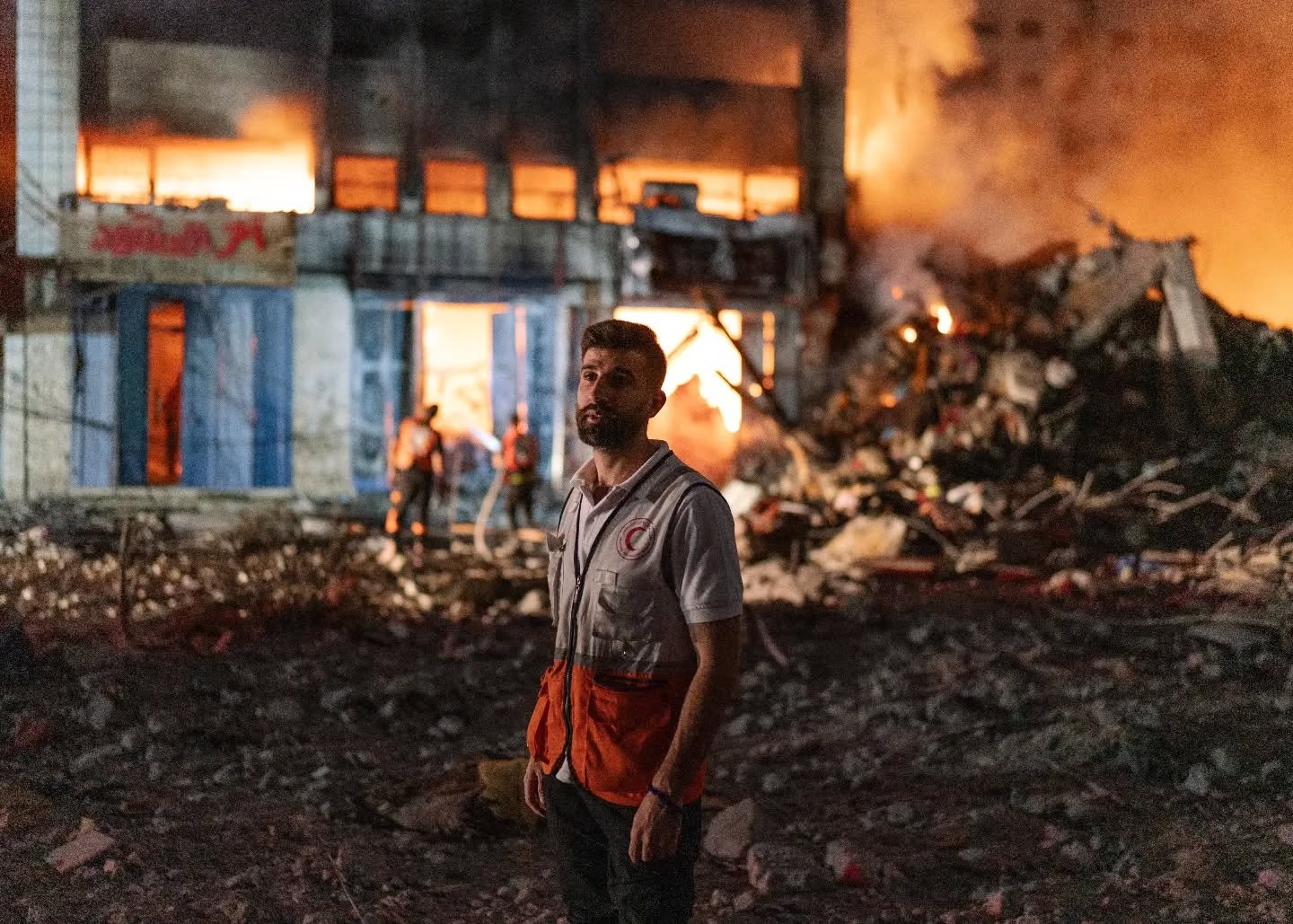
Al Quds Hospital - Photo by Saleem Z. Aburas

Kamal Adwan Hospital - Video by Dr. Hussam Abu Safia
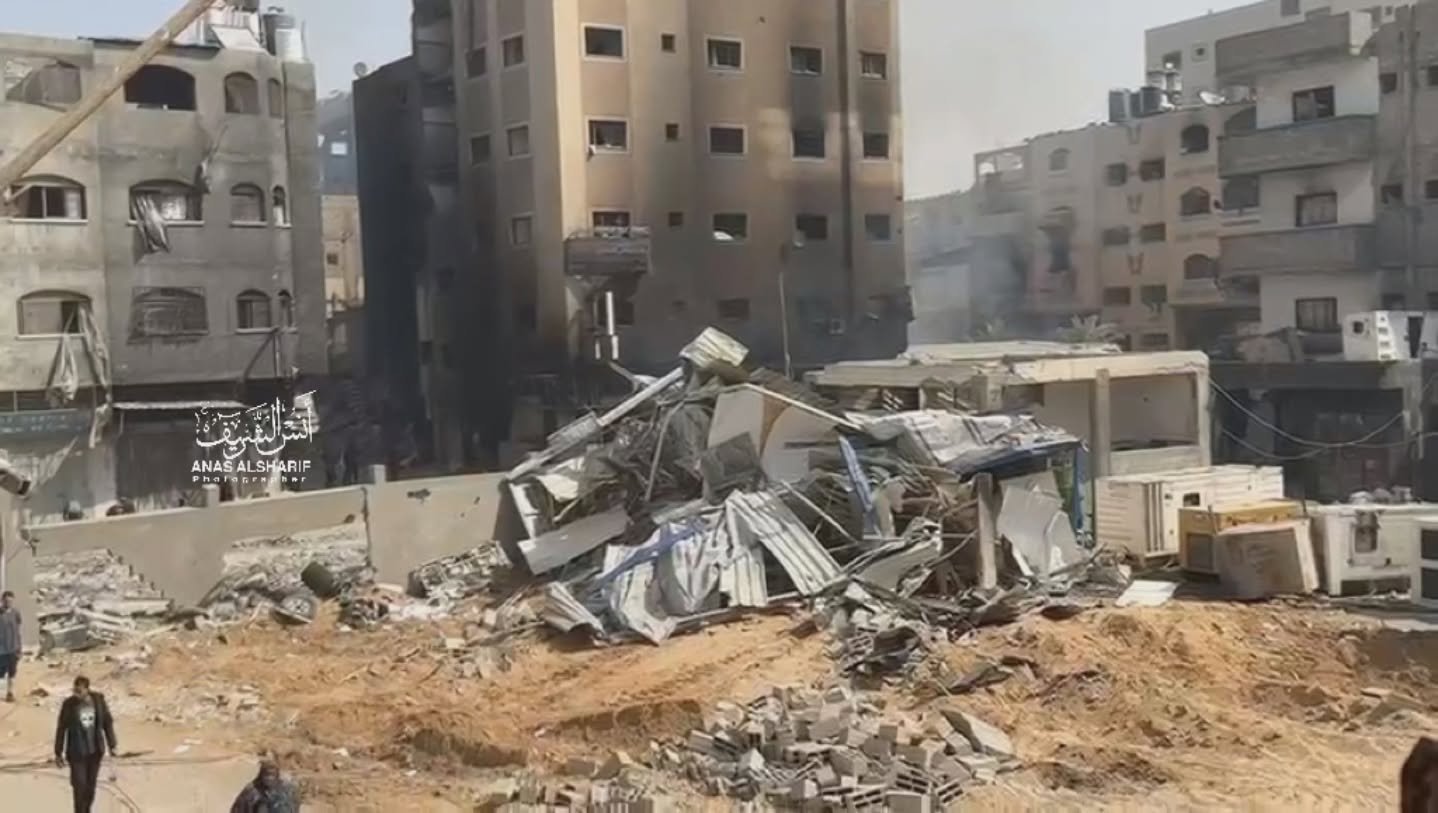
Kamal Adwan Hospital - Photo by Anas Al Sharif
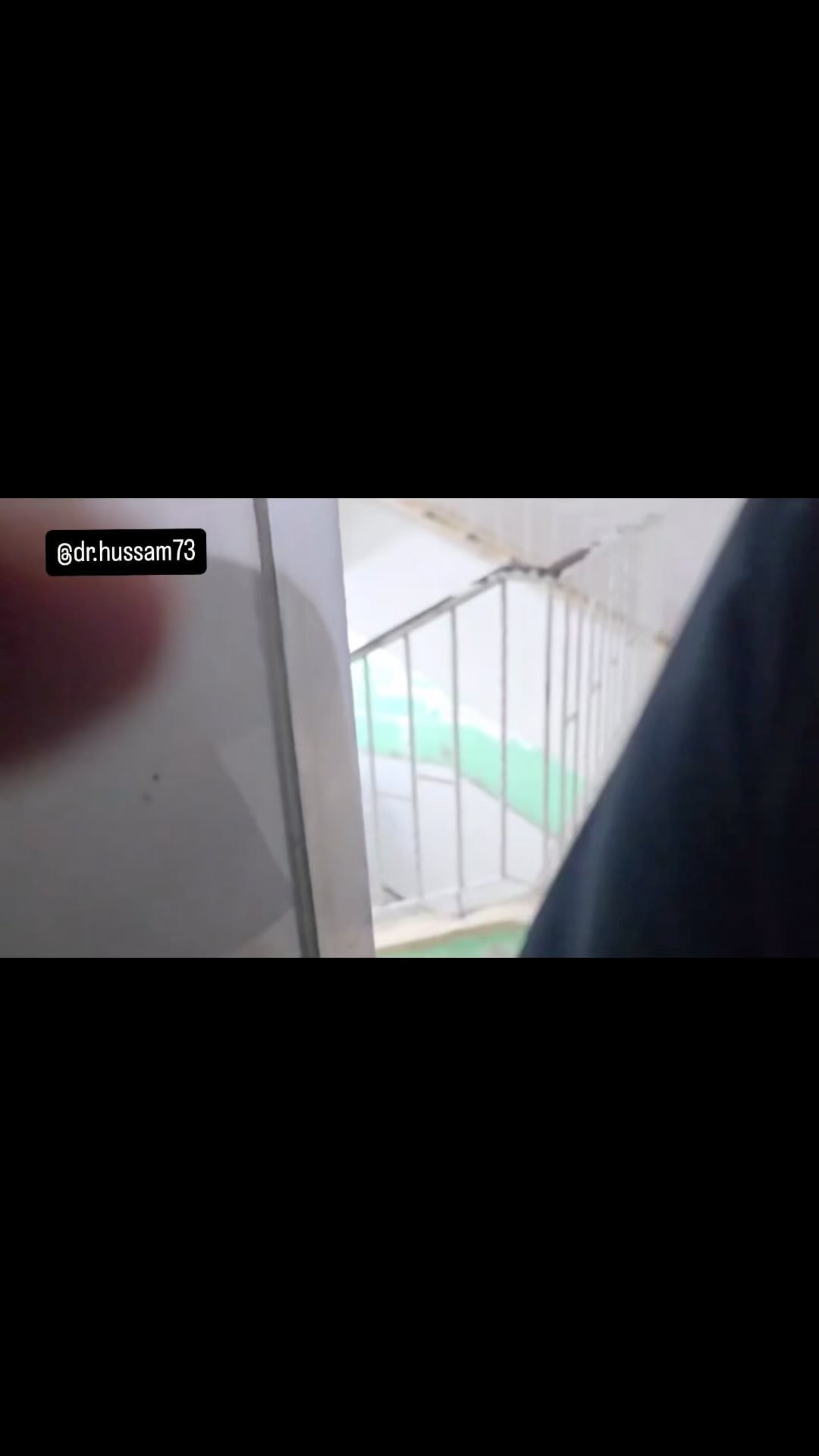
Kamal Adwan Hospital - Video by Dr. Hussam Abu Safia

Kamal Adwan Hospital - Photo by Anas Al Sharif
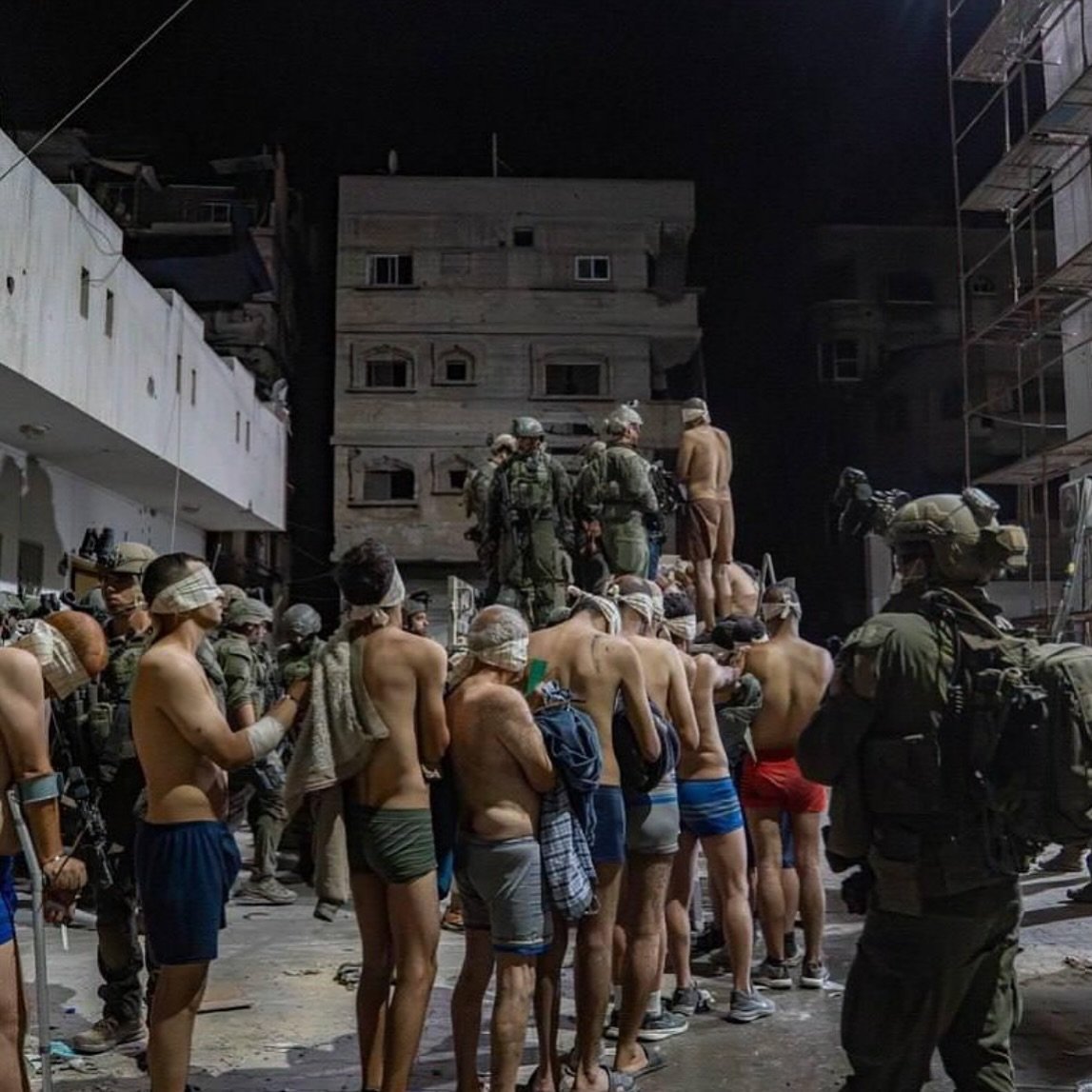
IOF Arrest Medical Staff at Kamal Adwan
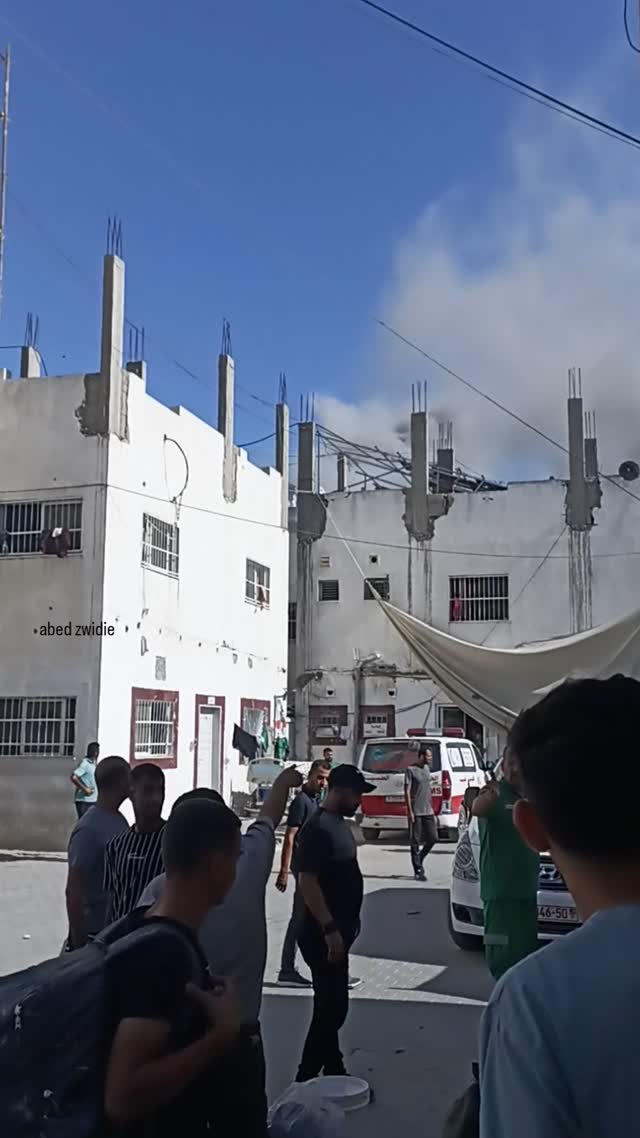
Kamal Adwan Hospital - Video by Abed Zwidie
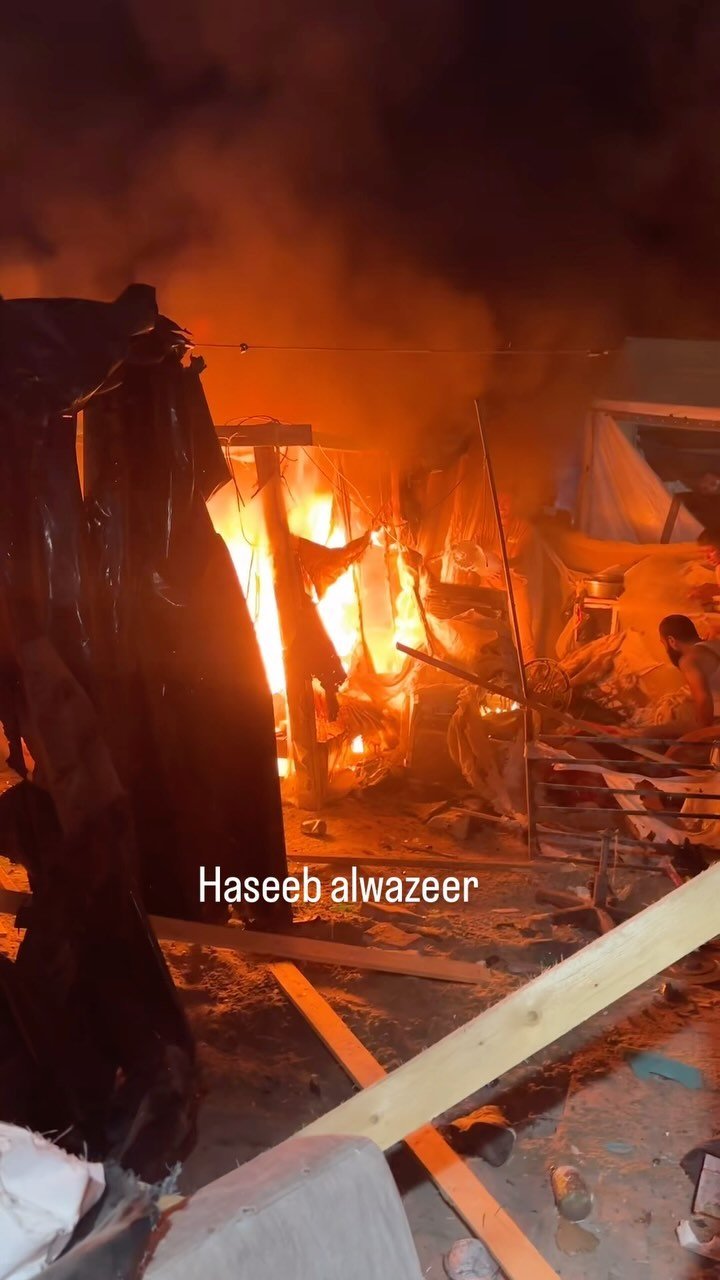
Al Aqsa Martyr's Hospital - Video by Haseeb Alwazeer

Al Aqsa Martyr's Hospital - Video by Hatem H. Rawagh
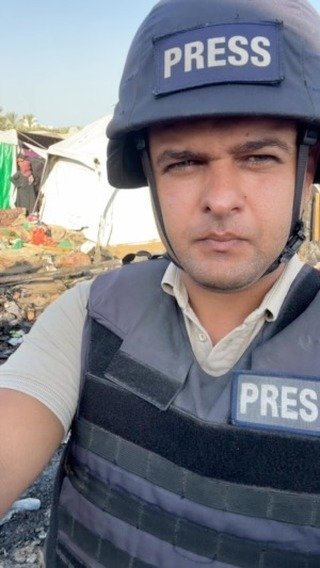
Al Aqsa Martyr's Hospital - Video by Tareq Abu Azzum
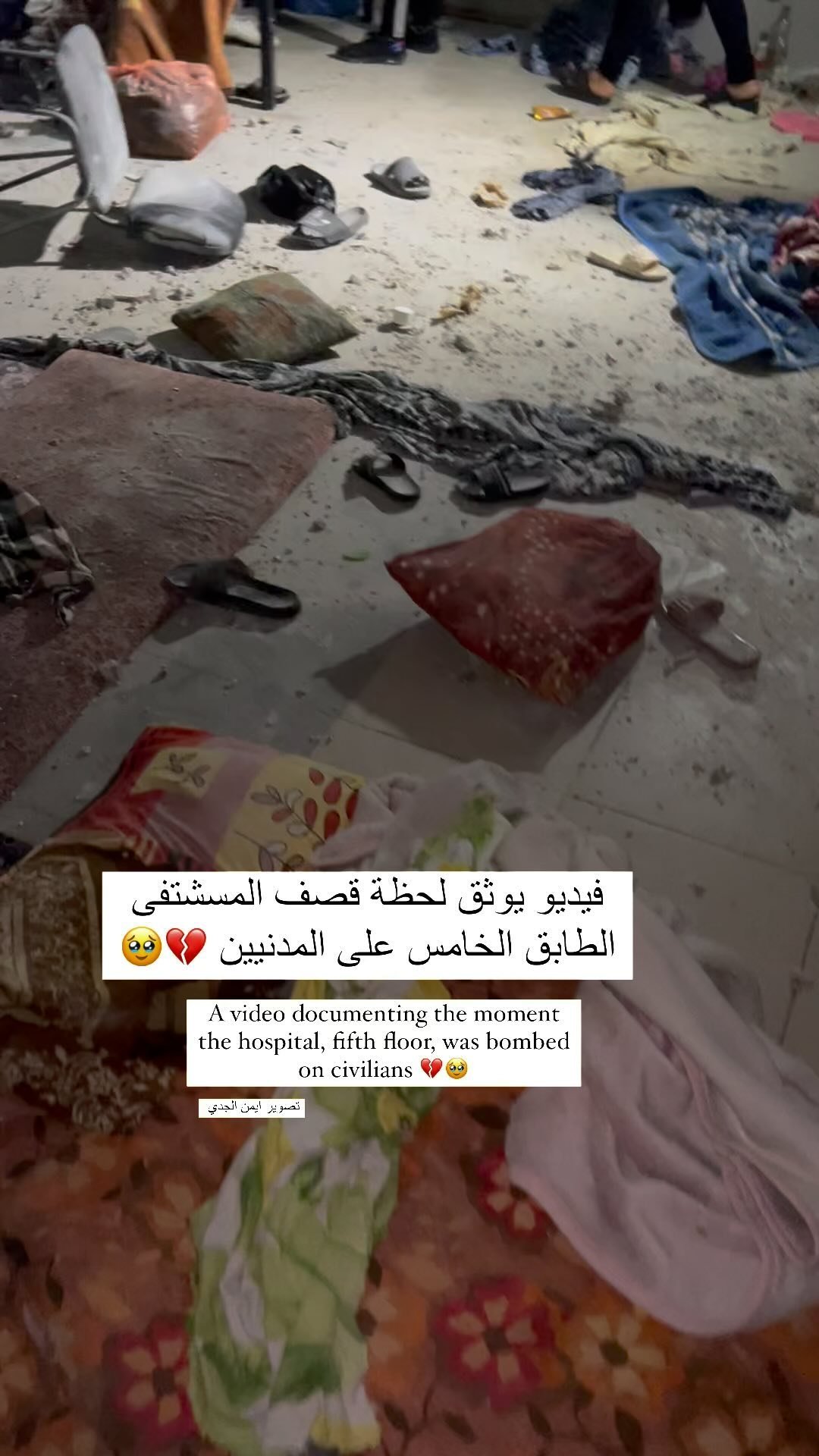
Al Shifa Hospital - Video by Ayman Al Gedi
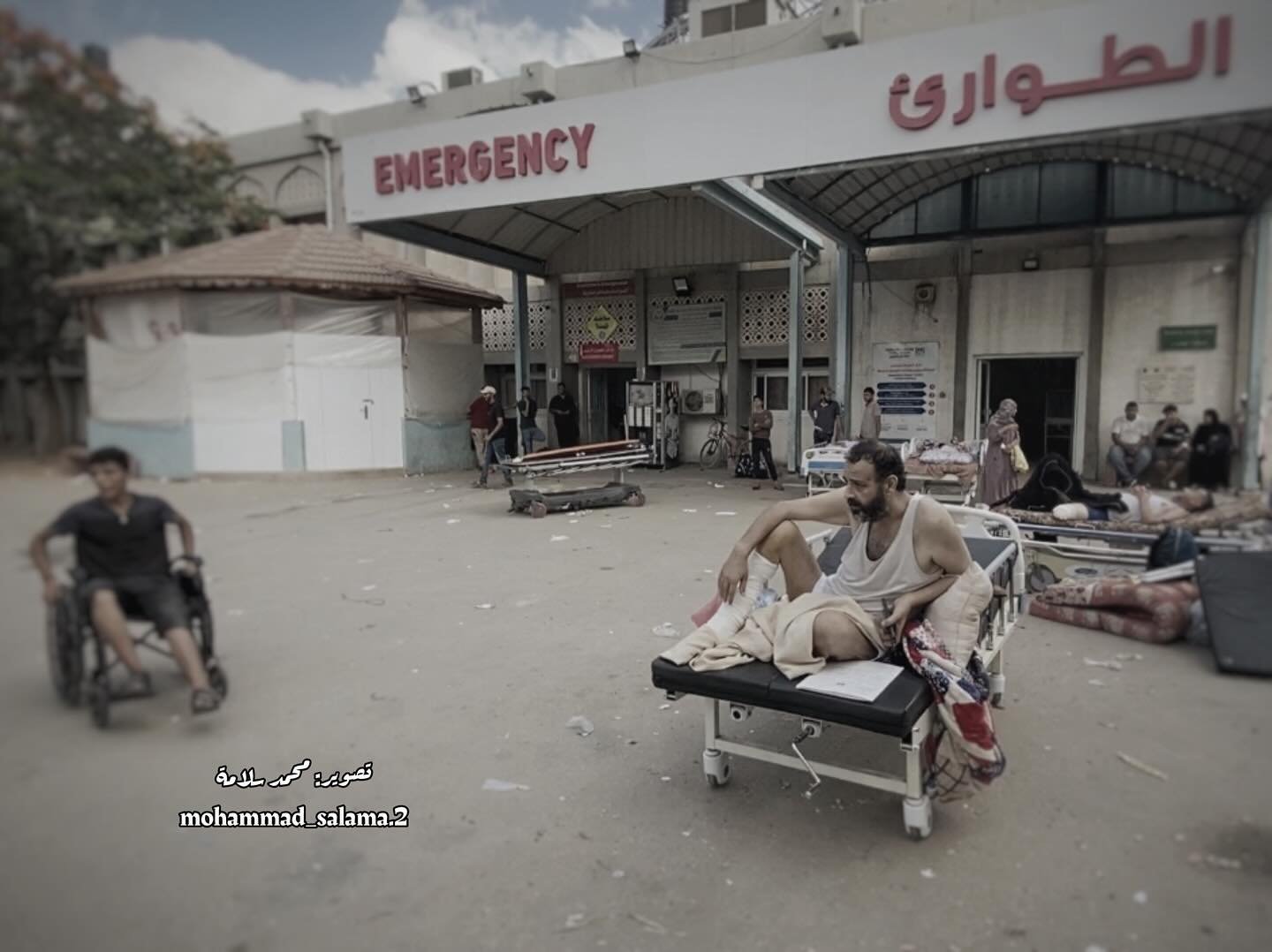
European Gaza Hospital - Photo by Mohammad Salama
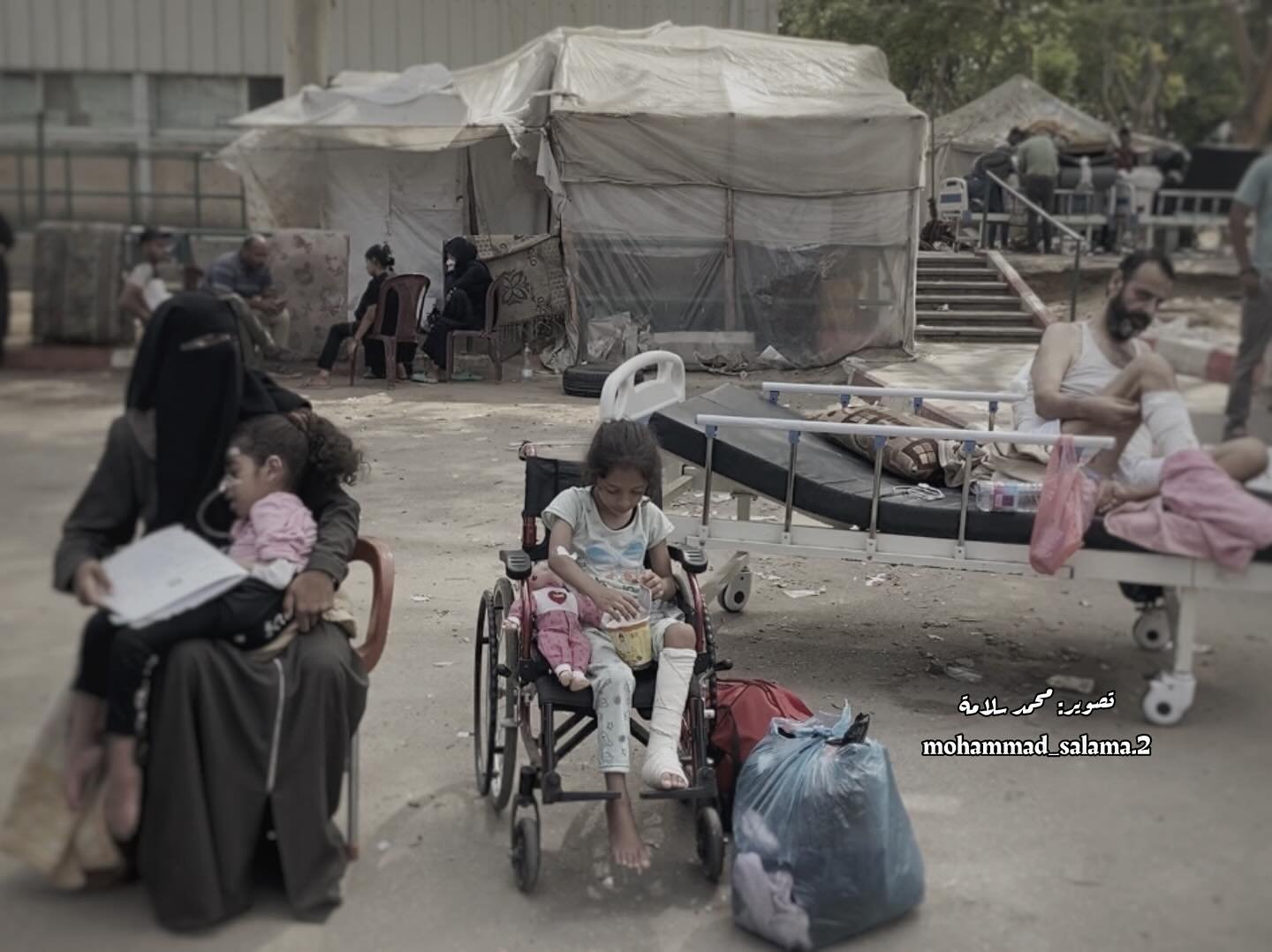
European Gaza Hospital - Photo by Mohammad Salama
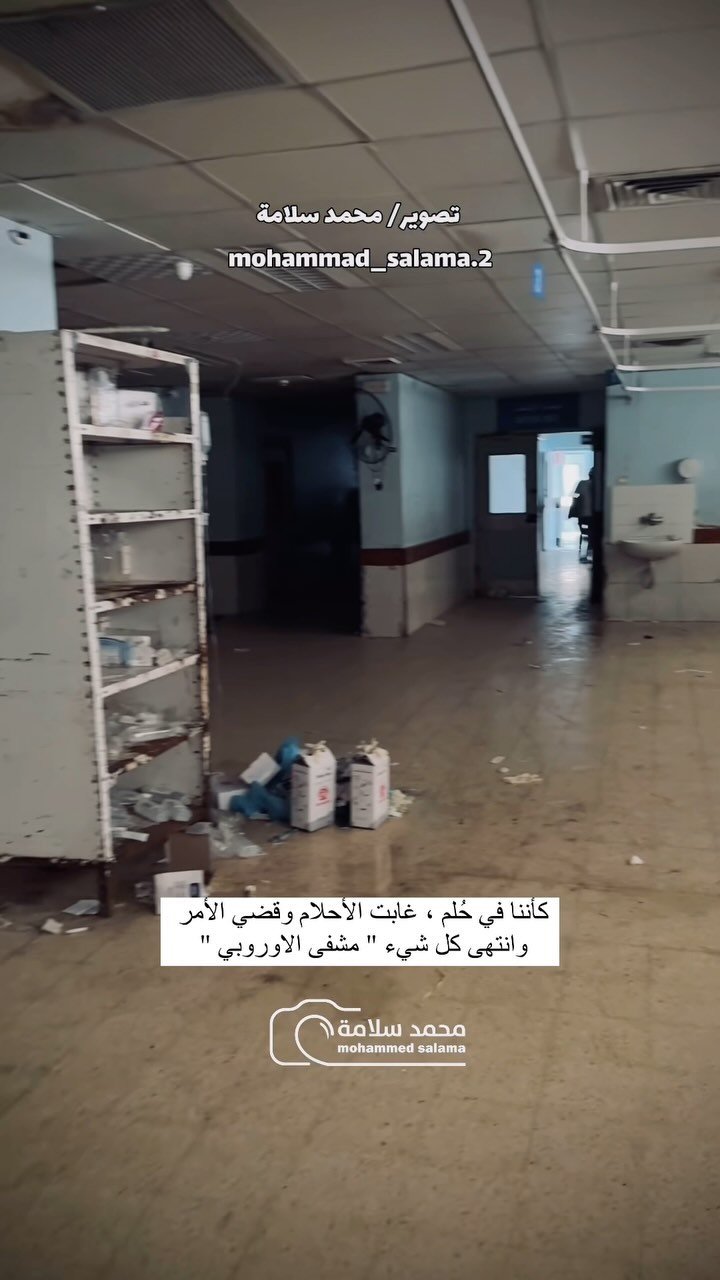
European Gaza Hospital - Video by Mohammad Salama

Al-Nasr Children's Hospital - Video by Mohammed Saber Arab
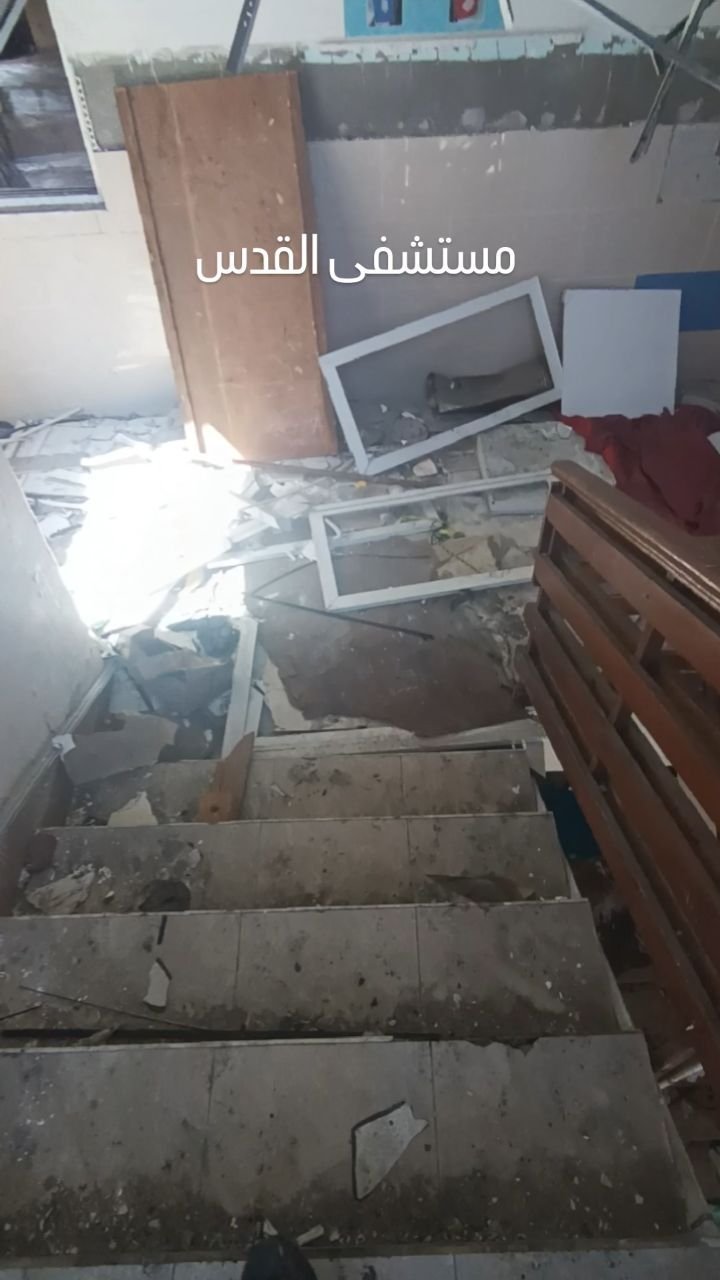
Al Quds Hospital - Video by Mohammed Saber Arab
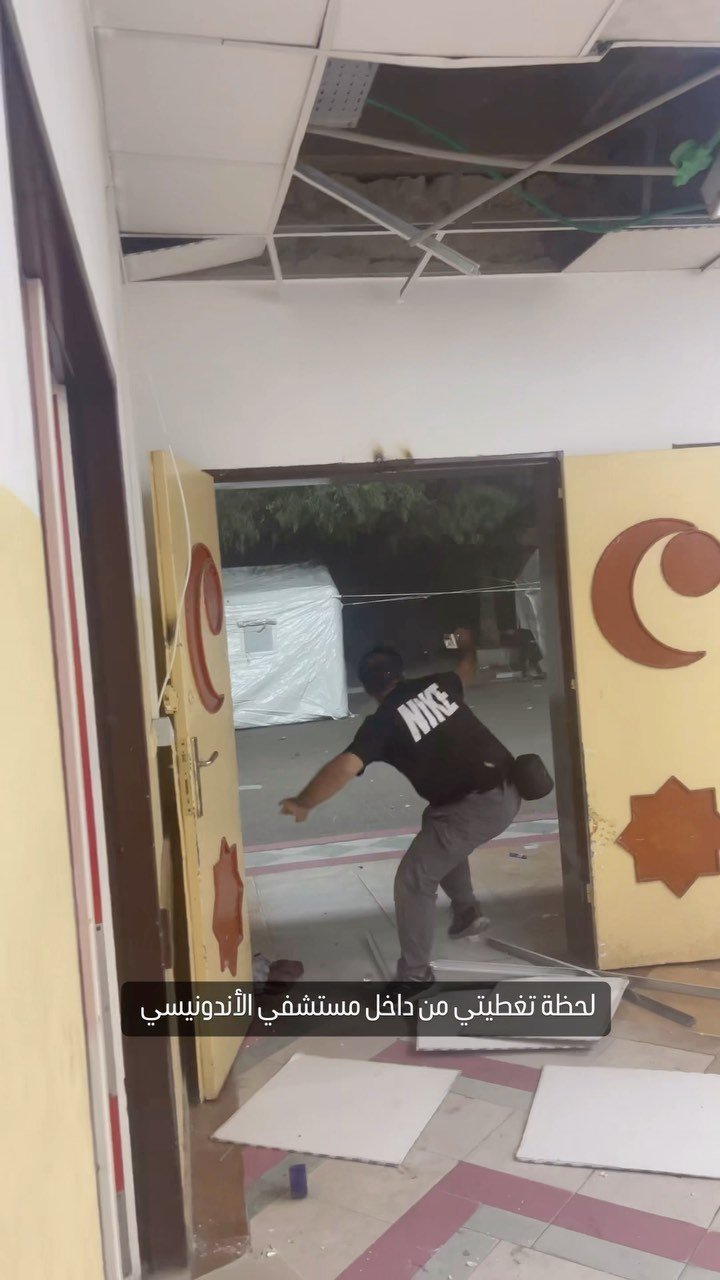
Indonesian Hospital - Video by Mahmoud Abusalama
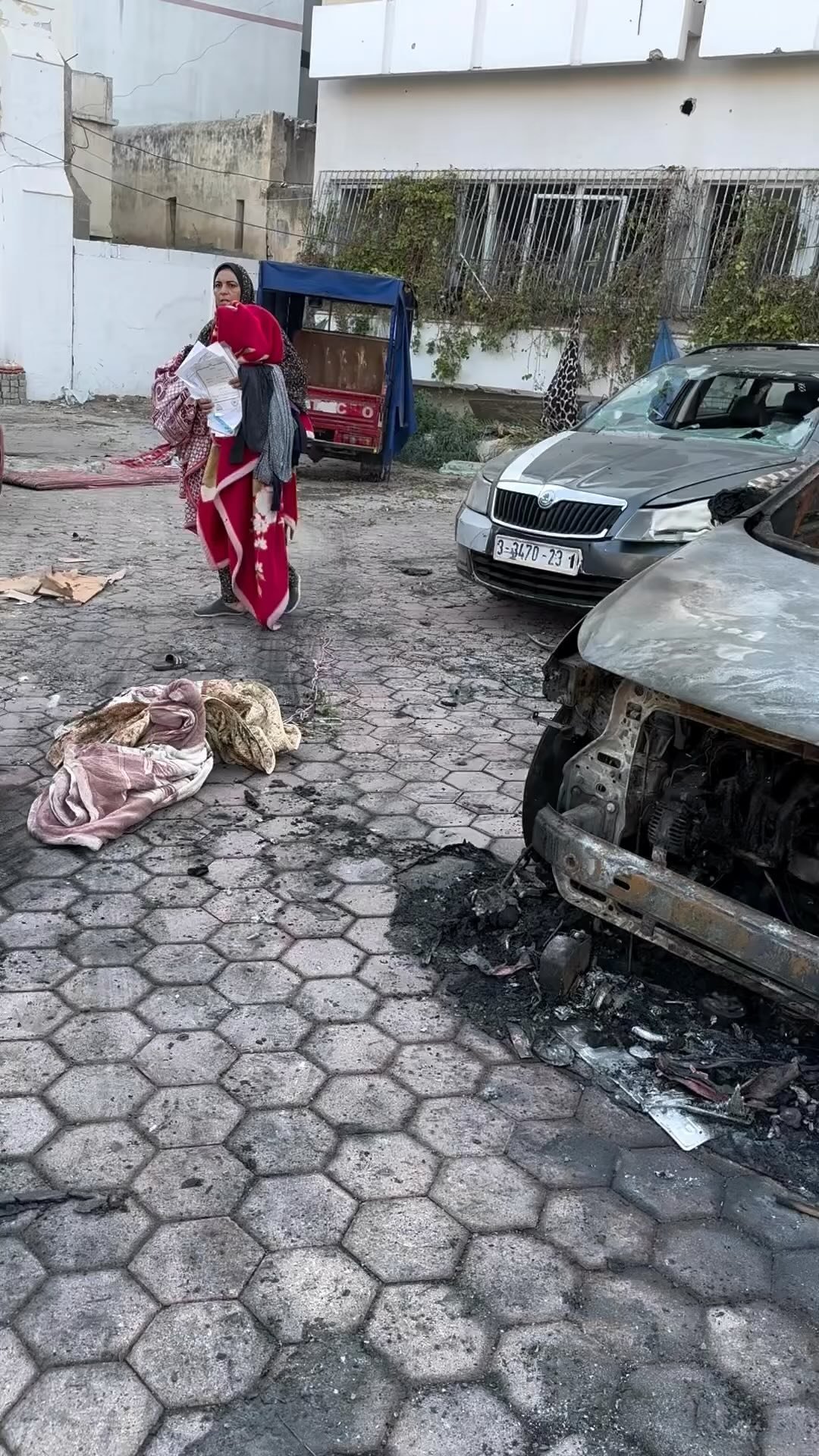
Ahli Arab Baptist Hospital - Video by Wael Al Dahdouh
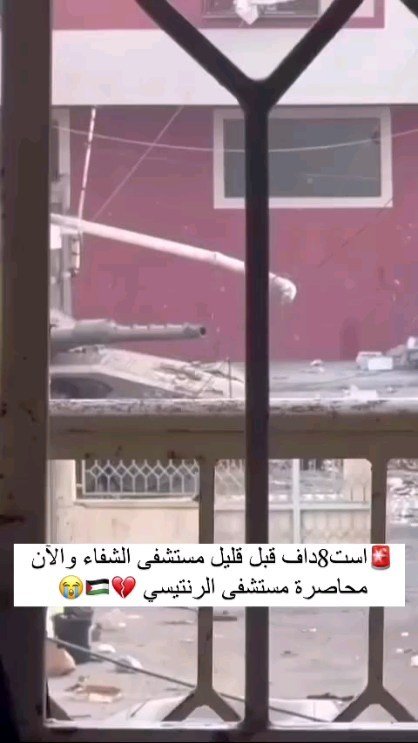
Al-Nasr Children's Hospital - Video by Hani Alshaer
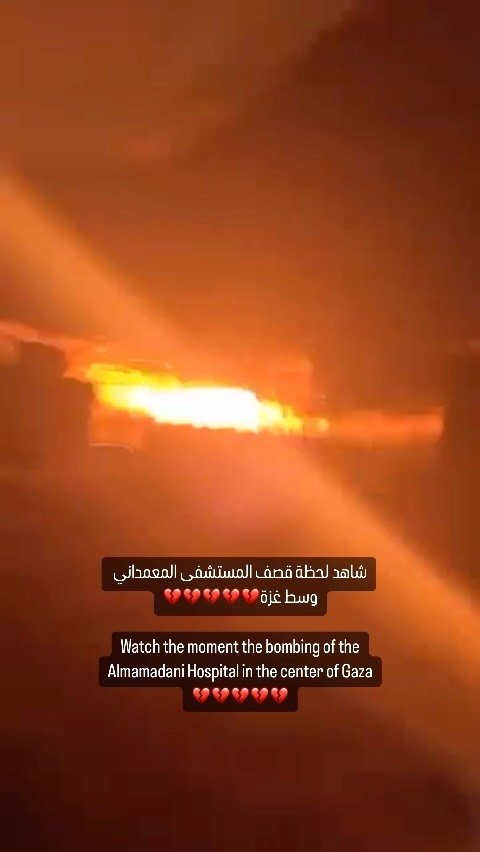
Almamadani Hospital - Video by Fouad Abu Khammash
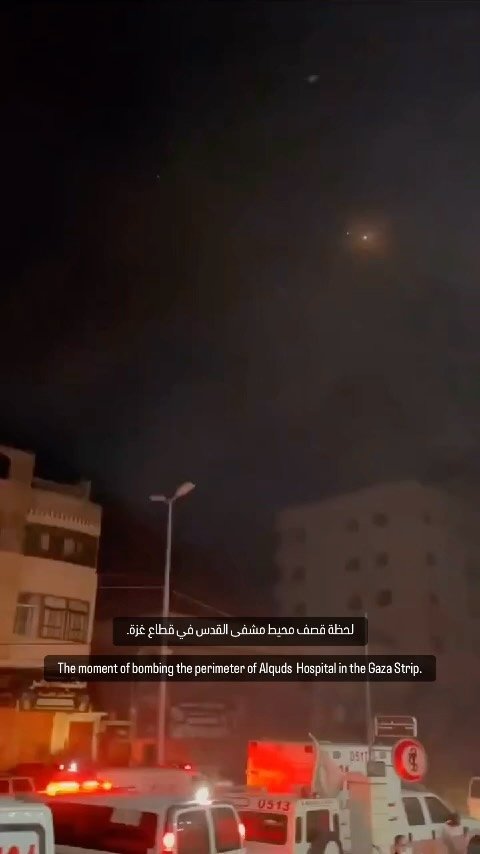
Al Quds Hospital - Video by Fouad Abu Khammash
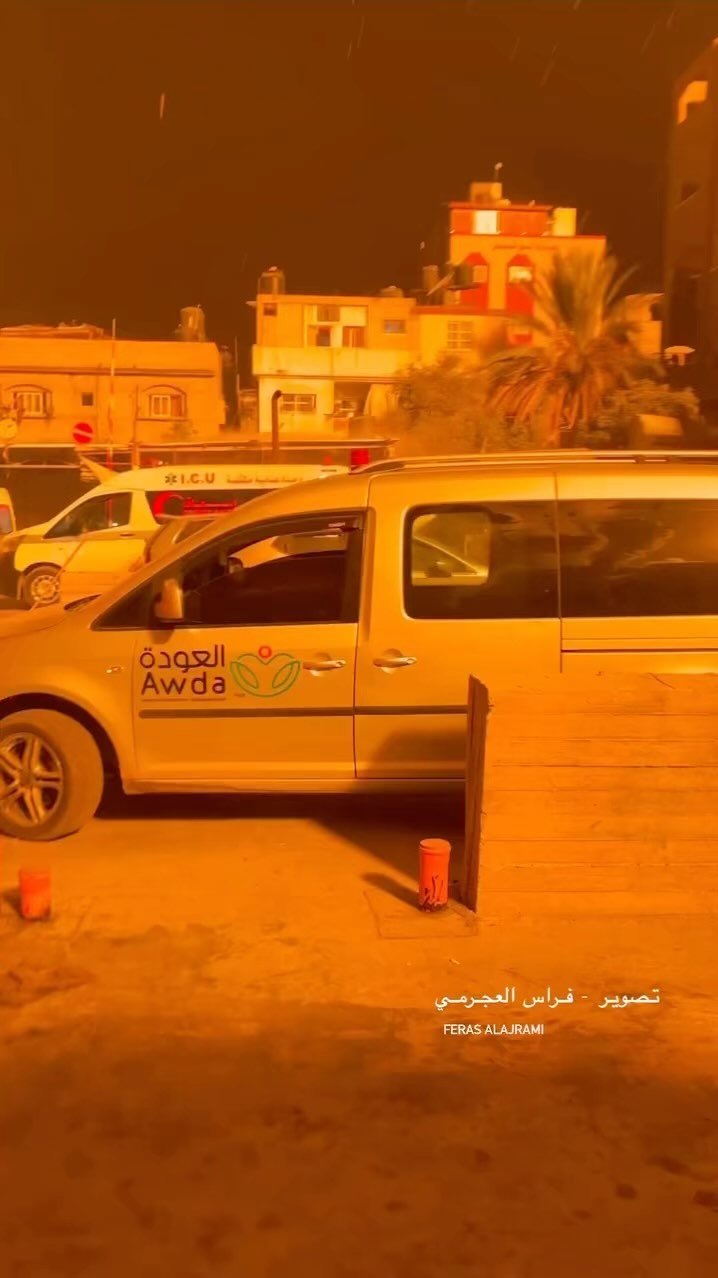
Al-Awda Hospital - Video by Feras Al Ajarmi
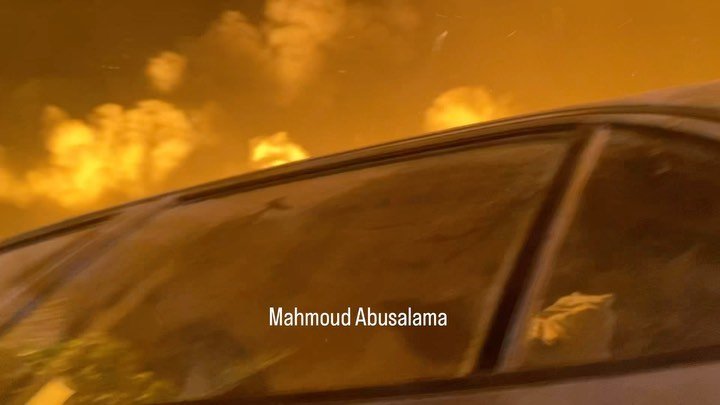
Indonesian Hospital - Video by Mahmoud Abusalama
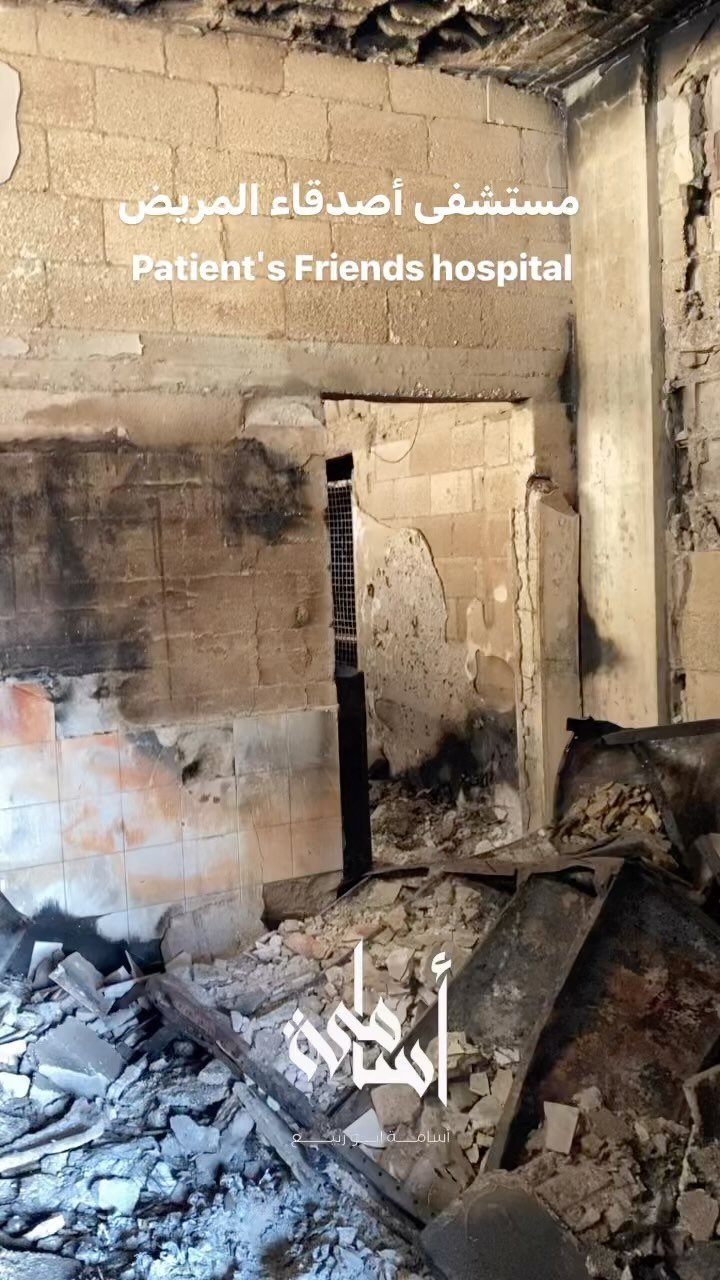
Patient's Friends Hospital - Video by Osama A. Rabea

PRCS Headquarters - Video by PRCS

Nasser Hospital - Video by Eye on Palestine

Al Aqsa Hospital - Video by Ahmad ibrahim
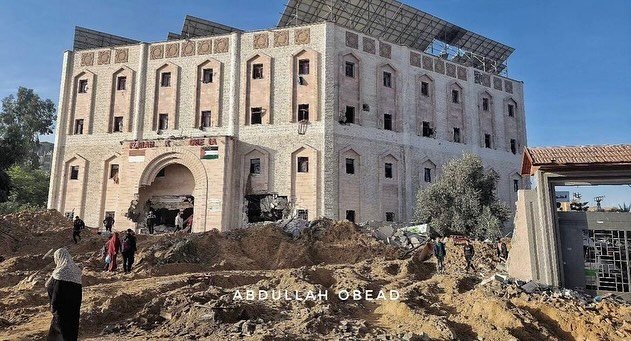
Indonesian Hospital - Photo Abdullah Obead
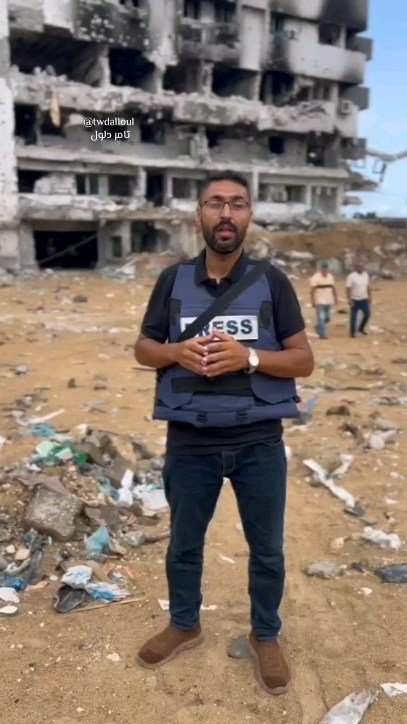
Al Shifa Hospital - Video by Tamer W. Dalloul
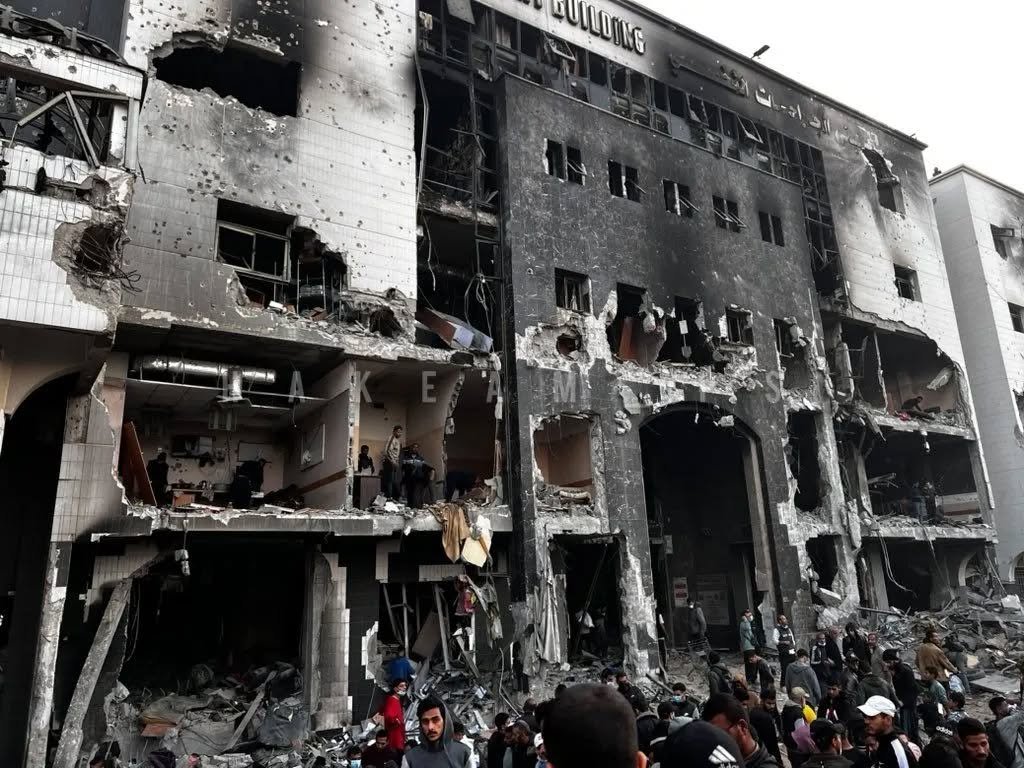
Al Shifa Hospital - Photo by Muthanna Al-Najjar
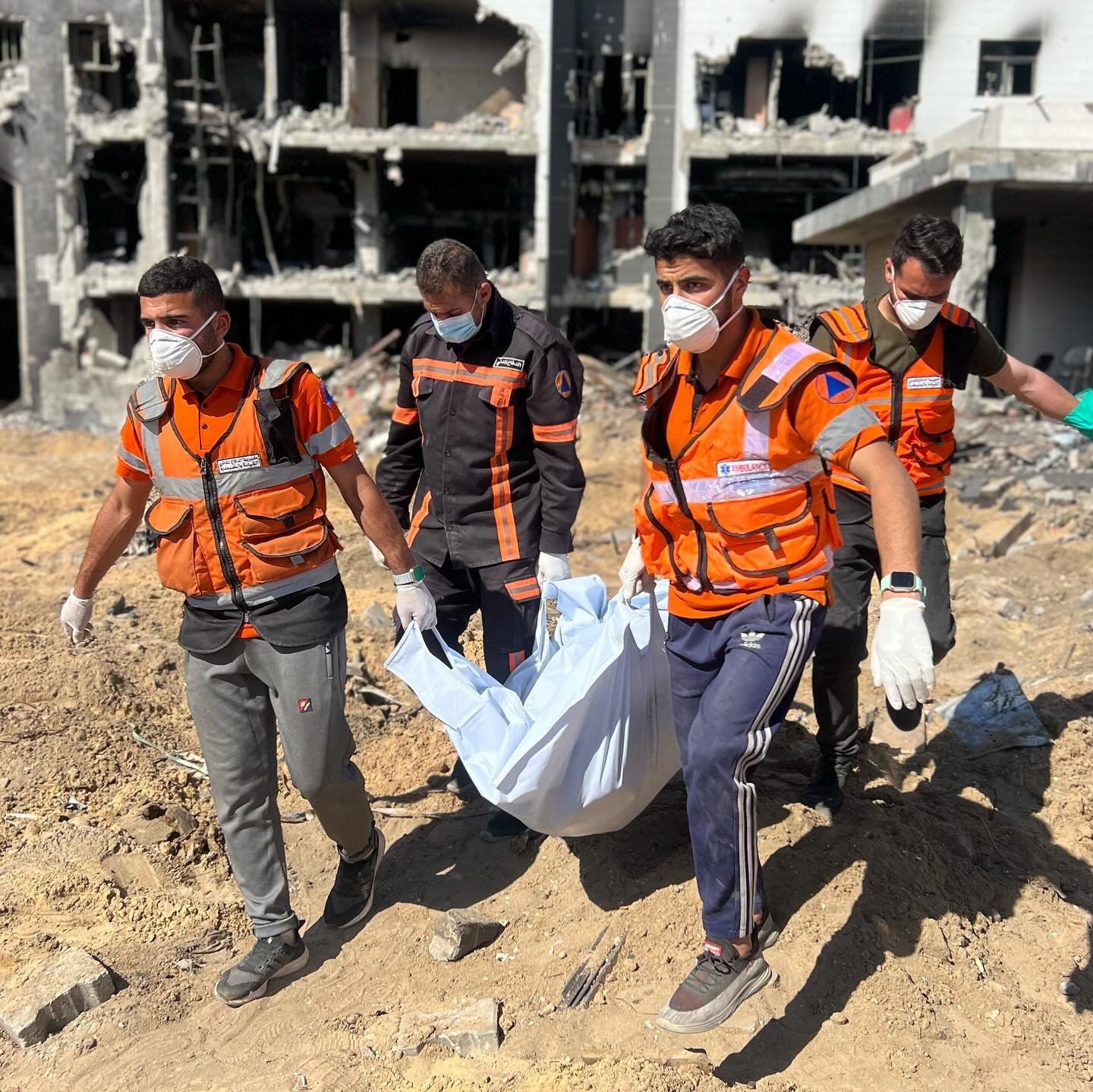
Photo by Monther Aldahshan
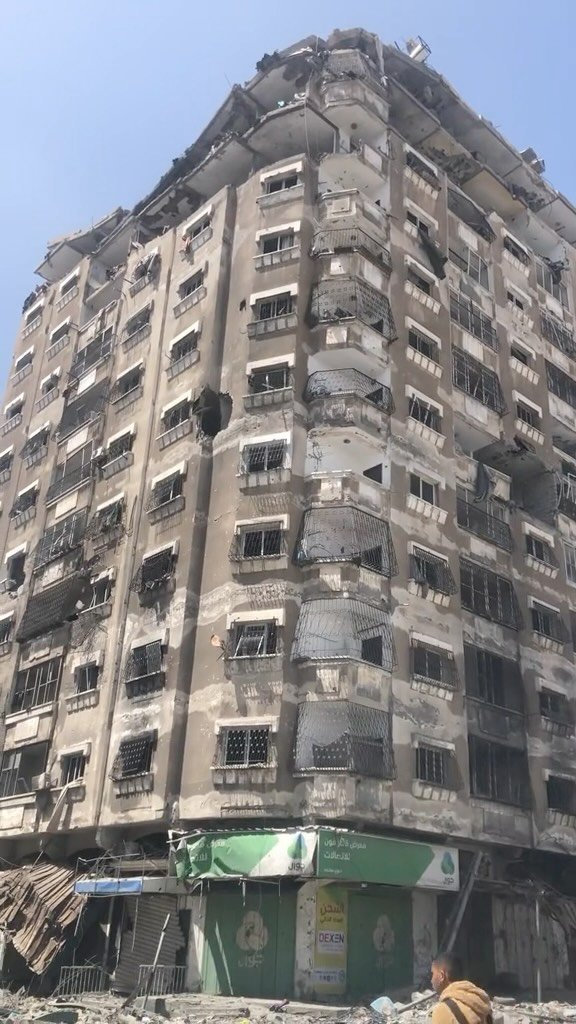
Al Shifa Tower - Video by Awad Abu Sharkh
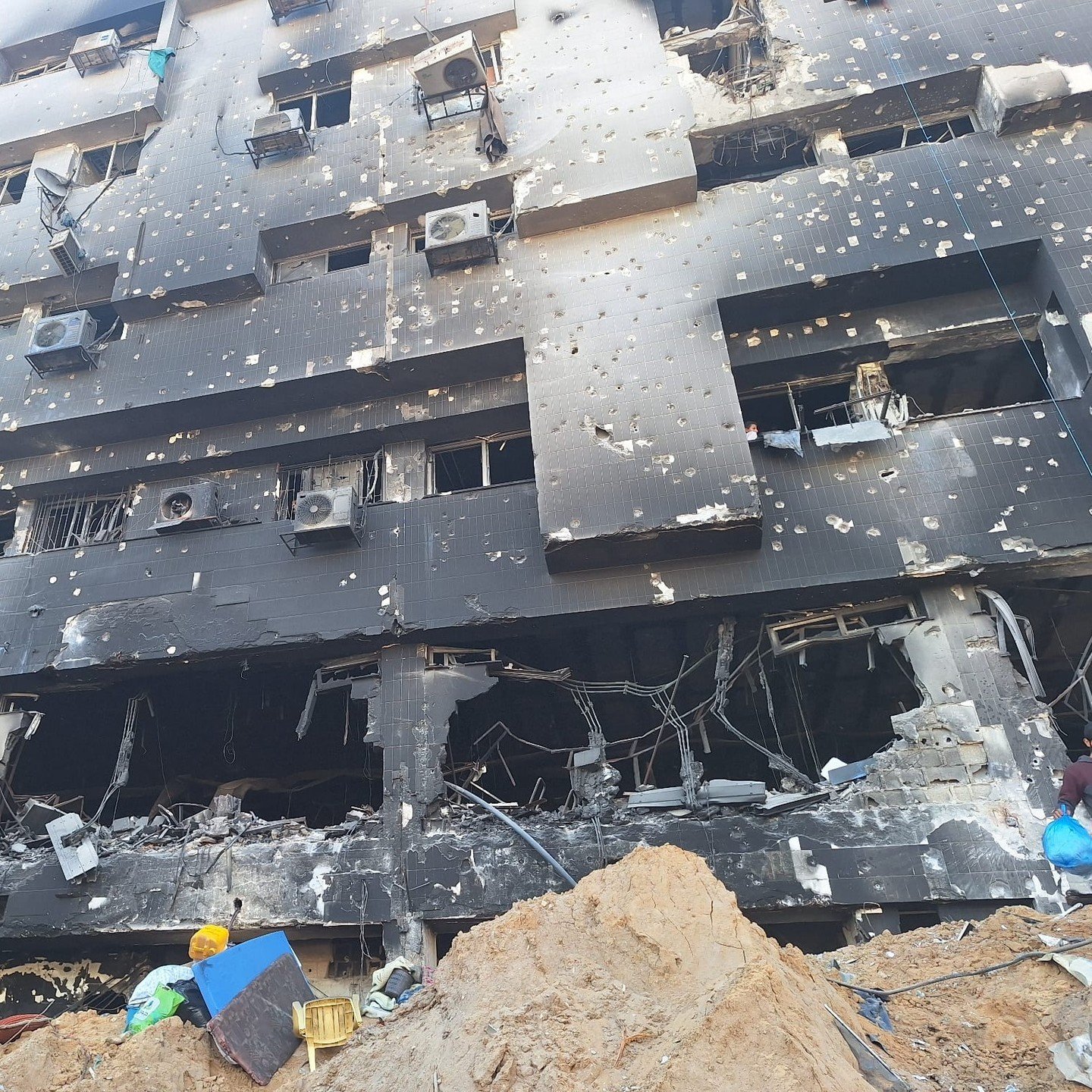
Al Shifa Hospital - Photo by Doctors Without Borders
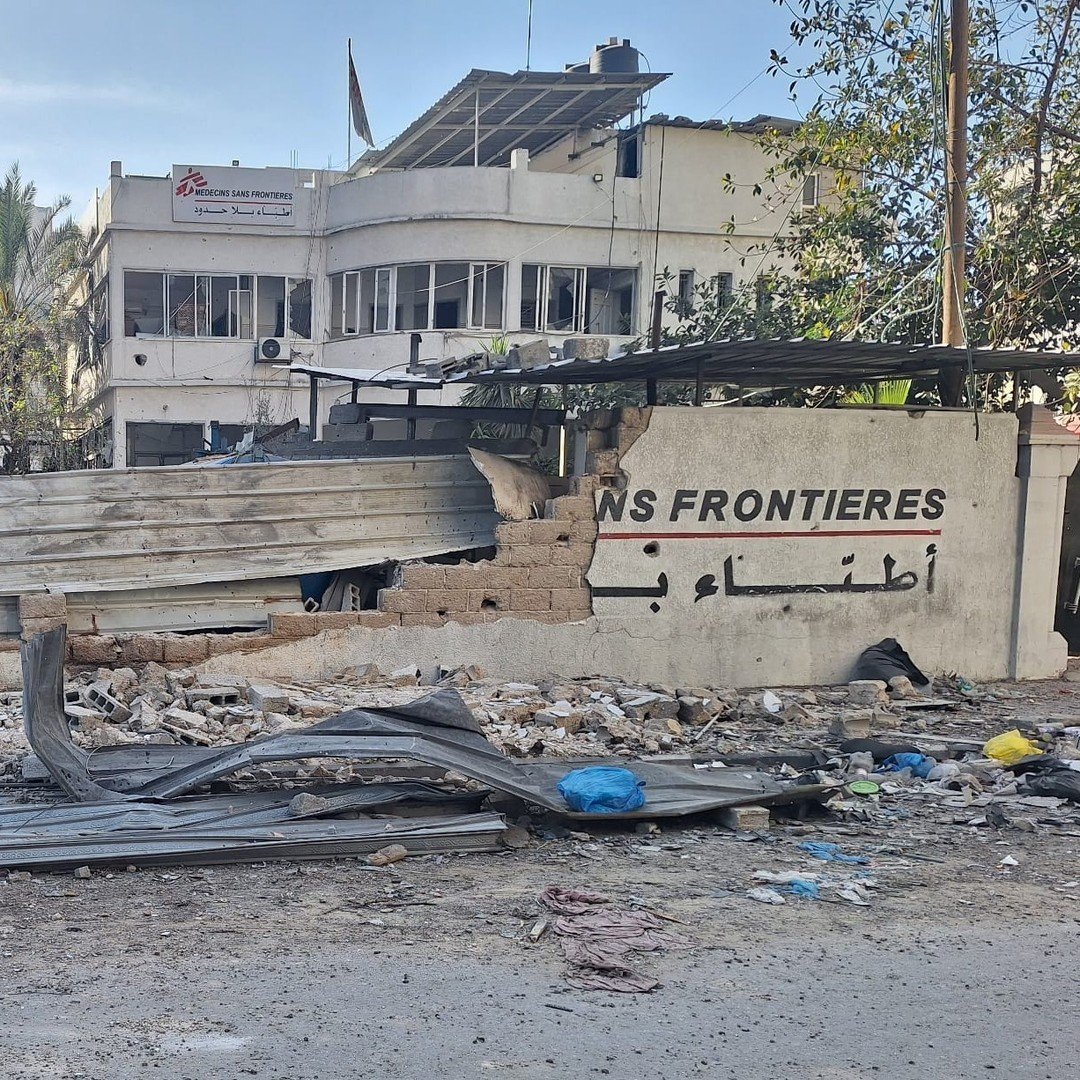
Al Shifa Hospital - Photo by Doctors Without Borders
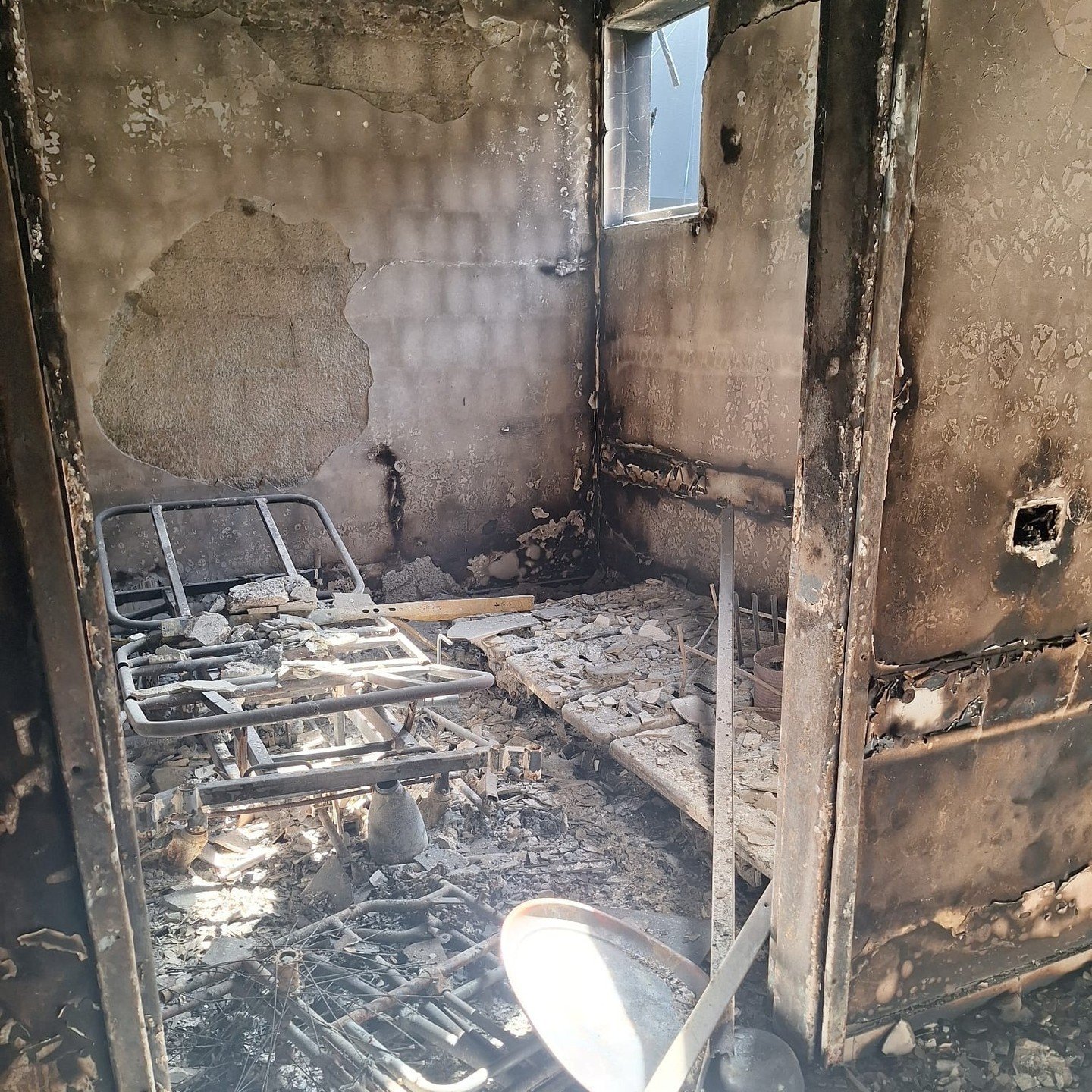
Al Shifa Hospital - Photo by Doctors Without Borders

Al Shifa Hospital - Photo by Doctors Without Borders
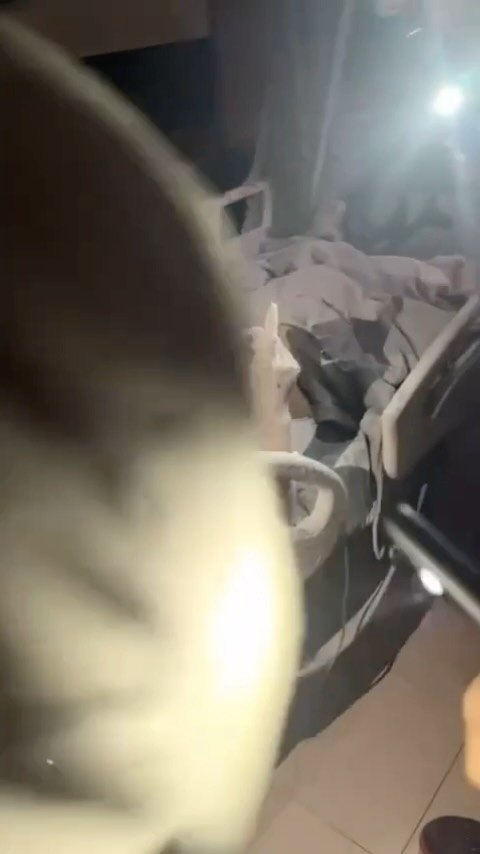
Nasser Hospital - Video Awad Abu Sharkh

Nasser Hospital - Video by Mohammed Laqan

Nasser Hospital - Video by Haseeb Alwazeer
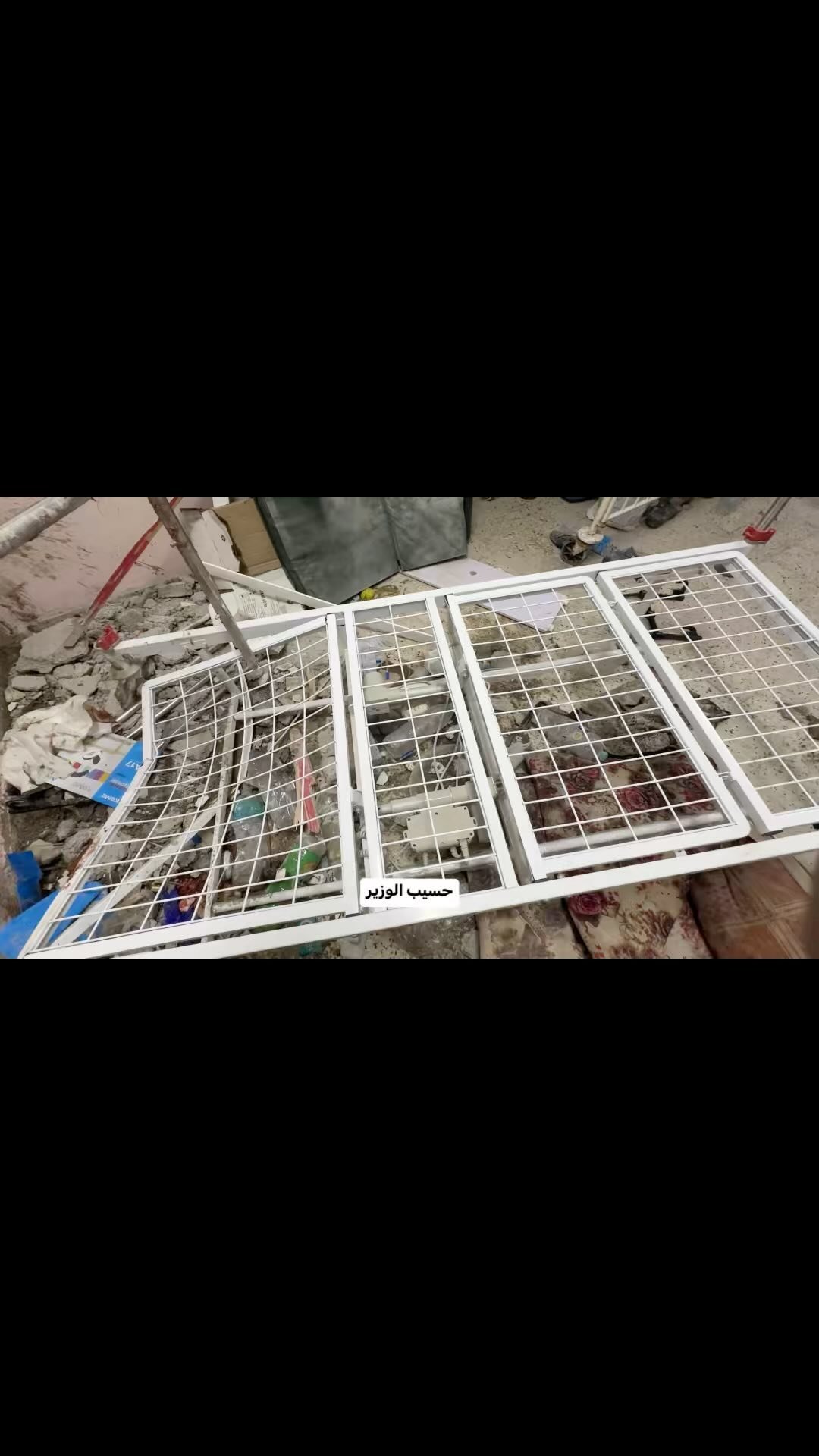
Nasser Hospital - Video by Haseeb Alwazeer
Hospital and Medical Facilities
Since October 7, 2023, the relentless bombing has led to the destruction of more than 300 hospitals and medical facilities, leaving countless communities without vital healthcare services. This staggering loss not only impacts immediate medical care but also threatens the long-term health of populations already facing unimaginable challenges. The consequences of such devastation ripple through families and communities, as the urgent need for medical attention becomes an insurmountable barrier in a landscape where hope seems to vanish with every crumbling wall. Doctors and surgeons navigating the chaotic landscape of civilian injuries face immense challenges as they contend with a staggering variety of trauma, including gunshot wounds, severe burns, blast injuries, loss of limbs, shrapnel injuries, and severe lacerations. The overwhelming influx of patients often strains limited resources, forcing healthcare professionals to make rapid, life-altering decisions under pressure. Gunshot wounds may penetrate vital organs, while blast injuries can shatter bones and damage soft tissues, leading to complex cases requiring immediate surgical intervention. As of October 2024, the demographics of injured civilians reflect a stark and troubling reality. The casualties predominantly affect women and children, who account for roughly 65% of the injured population.
Since October 7, 2023, Israel has targeted numerous hospitals and medical facilities in Gaza, resulting in significant casualties and damage to the healthcare infrastructure. According to the United Nations, as of late October 2024, over 30 hospitals have been partially or completely destroyed, leaving thousands without access to essential medical care. The UN has emphasized the dire consequences of these actions, highlighting that the ongoing conflict has exacerbated an already dire humanitarian crisis, with healthcare workers facing extreme challenges in providing care amidst relentless Israeli bombardment.
Reports indicate a troubling pattern of abduction involving doctors, paramedics, and medical workers in Israel. As of October 2024, it is estimated that over 150 medical professionals have been detained or abducted under various circumstances since the escalation of conflict in the region. Many of these individuals play critical roles in providing emergency medical care, often risking their lives to serve those in need. The targeting of healthcare workers not only undermines medical ethics but also severely impacts the healthcare system's capacity to respond in crisis situations, leaving countless individuals without essential services.
Medical facilities, injured patients, and medical workers are explicitly protected under international humanitarian law, particularly through the Geneva Conventions and the Rome Statute. The Fourth Geneva Convention, particularly Articles 18 and 19, outlines the safeguards for civilian hospitals and medical establishments, ensuring they remain safe havens during armed conflicts. Article 19 emphasizes the importance of respecting and protecting the wounded and sick, mandating that medical units may not be attacked or hindered. Additionally, the Rome Statute of the International Criminal Court reinforces these protections; Article 8(2)(b)(ix) categorically criminalizes the intentional targeting of medical personnel and facilities. Together, these legal frameworks establish robust protections for those in medical need and the brave workers dedicated to their care amidst war's chaos.
The targeting of Hospitals, doctors, trauma surgeons, medical facilities, ambulances and ambulance centers, Civil Defense workers and has resulted in a catastrophic collapse of the Gaza healthcare system, exacerbated by blockades and military actions that have severely restricted access to essential medical supplies and facilities. As a result, the healthcare crisis in Gaza has reached unprecedented levels.
The evidence
Sarkha Project has meticulously gathered a comprehensive array of videos, images, reports, and firsthand testimonies pertaining to dire human rights violations occurring within Gaza. These include accounts of hospital sieges, raids, and bombings, as well as the abduction, torture, and killings of medical professionals, including doctors, paramedics, and first responders.
The evidence collected unequivocally demonstrates a troubling pattern: the Israeli military is systematically targeting Gaza's healthcare infrastructure. This not only compromises the delivery of essential medical services but also places countless civilian lives in jeopardy, particularly during times of acute need.
The implications of these assaults on healthcare extend far beyond immediate physical damages; they erode the very foundations of medical ethics and humanitarian assistance. The persistent targeting of medical personnel and facilities showcases a blatant disregard for international humanitarian law, as well as a failure to uphold the principle of medical neutrality, which is essential for the protection of healthcare workers and the provision of care to the wounded and ill.
Collecting open source evidence on this widespread issue is an enormous timely task. So far we have collected evidence on the following incidents
Ambulance Attacks - Completed
Al Shifa Hospital Sieges & Bombings - Processing
Nasser Hospital Siege - Processing
Al Amal Hospital Siege - Processing
Al Aqsa Hospital bombings - Processing
Kamal Adwan Hospital Siege and Bombings - Processing
Indonesian Hospital bombings - Processing
Al-Ahli Arab Hospital bombing - Processing
Al Quds hospital bombings - Processing
Sarkha Project is currently engaged in the meticulous processing of evidence pertaining to documented attacks on the healthcare system and medical workers in Gaza ; however, we recognize the urgency of your request. Accordingly, we invite you to submit an evidence request in advance. While we are unable to provide immediate access to the processed materials, we assure you that once the analysis is complete and the evidence is validated, we will promptly fulfill your request. This procedure underscores our commitment to ensuring that all disseminated information adheres to our rigorous standards of accuracy and integrity.
The images displayed in the gallery above are not owned by Sarkha Project and are used solely for educational and informational purposes related to the documentation of human rights violations. If you are the copyright holder of any image and wish to have it removed, please contact us directly, and we will promptly address your request. All efforts have been made to credit the respective owners, and we respect all copyright laws.
